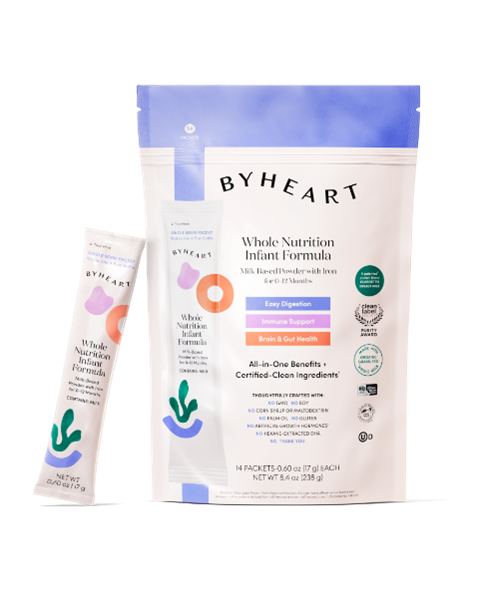
The outbreak of infant botulism tied to infant powder formula has grown by eight cases in just three days, according to the latest updates from the Centers for Disease Control and Prevention (CDC) and the Food and Drug Administration (FDA).
The multistate outbreak, which is linked to ByHeart Whole Nutrition Infant Formula, now stands at 23 cases, all involving hospitalization. Infants in thirteen states have been affected, which means one new state is now affected. No deaths have been reported.
Illness-onset dates range from August 9 to November 11. Infant ages range from 16 to 200 days.
Infant botulism occurs when the bacterium Clostridium botulinum infects a baby's large intestine and produces toxin. Symptoms include constipation, poor feeding, loss of head control, and difficulty swallowing, which can progress to difficulty breathing and respiratory arrest. Symptoms can take several weeks to develop following ingestion.
Expanding recall
ByHeart recalled two lots of Whole Nutrition Infant Formula on November 8 on the recommendation of the FDA. The recommendation was based on the number of parents who had reported feeding ByHeart formula to infants in the outbreak, along with preliminary lab results from the California Department of Health that suggested the presence of C botulinum in an open can of ByHeart formula that had been fed to an infant in the outbreak.
On November 11, the FDA expanded its recommendation to include all ByHeart infant formula products, and the company subsequently said it was expanding its voluntary recall to include all batches of Whole Nutrition Infant Formula cans and Anywhere Pack nationwide. ByHeart products account for roughly 1% of all infant formula sold in the United States.
USA Today reports that two families have filed complaints in federal courts against ByHeart after their infants became ill.
The CDC and the FDA are advising parents and caregivers to stop using any ByHeart infant formula products immediately, and for retailers to ensure that the recalled products are not on store shelves. The FDA says its investigation, including onsite inspections and sample collection, is ongoing.















